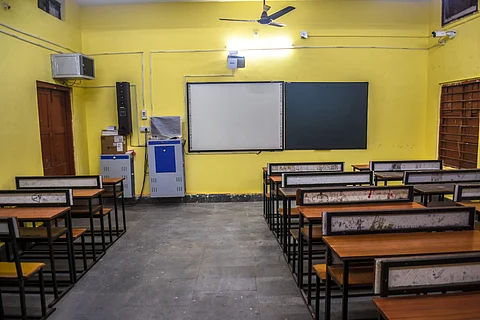

Do you know how many students have been affected because of the partial or full closure of schools across the world? A UNICEF report has pegged the number at over 616 million students. Via the report, UNICEF shared the latest data with regards to the pandemic's impact on the learning of children.
"In March, we will mark two years of COVID-19-related disruptions to global education. Quite simply, we are looking at a nearly insurmountable scale of loss to children's schooling," said Robert Jenkins, UNICEF's Chief of Education, in a statement, as per a report in IANS.
There is a loss of basic numeracy and literacy skills in children when it comes to countries that fall in the low or middle-income bracket, 70 per cent of ten-year-olds are unable to read or understand simple text due to school closure-induced learning loss. The number is up from 53 per cent, which is what it was during the days before the pandemic, the report stated.
Primary school children of Ethiopia have only learned 30 to 40 per cent of the Math they would have learned if it were a normal school year while in several states of Brazil, about three in four children in Class II are off the track when it comes to reading, the pre-pandemic number was one in two children.
School children in South Africa are between 75 per cent to a full school year behind while in our very own country, India, 80 per cent of the adolescents (14 to 18 years) have reported learning less due to the closure of schools.
Developed countries aren't spared either. Even in countries like the USA, the UK and Australia, learning losses in children have been observed.
Impact on mental health, reduction in access to a singular source of income and increase in the risk of abuse — all these have also been affected because of school closures. Evidence has emerged that COVID-19 has brought upon a high rate of anxiety and depression among children and youngsters and a few studies have also found that girls, adolescents and those living in rural areas are likely to experience these problems.
Over 370 million — that's the number of children who have missed out on meals, which is for a few of them the only reliable source of food and daily nutrition, globally.
UNICEF's Chief of Education says that while disruptions might end, just reopening schools might not suffice. "Students need intensive support to recover lost education. Schools must also go beyond places of learning to rebuild children's mental and physical health, social development and nutrition," he added.
